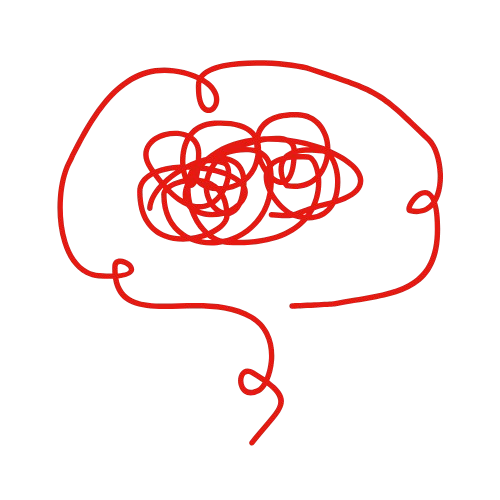- Published on
The Invisible Weight of Digital Clutter: Decluttering Our Virtual Lives
- Authors

- Name
- Mindmire
- @Md_Khokon_Mia
Previous Article
Next Article
The Invisible Weight of Digital Clutter: Decluttering Our Virtual Lives
Have you ever noticed how our digital spaces are slowly succumbing to the chaos we once only associated with an overstuffed closet or a messy garage? In the same way we once accumulated stacks of old magazines and an embarrassing collection of mismatched socks, we now hoard files, apps, and unread emails. Our digital lives are bursting at the seams, and it's starting to feel like the modern version of a hoarder's paradise.
Take a moment to consider your smartphone. A device that, ironically, was designed to simplify our lives now houses a labyrinth of apps you downloaded on a whim, hoping they'd transform you into a productivity ninja or a culinary genius. Yet, they've mostly become icons of good intentions gathering virtual dust. Then there's the pitiful state of our email inboxes—those digital dumping grounds filled with newsletters we never read and promotional offers from stores we barely remember visiting.
The irony here is as thick as the digital clutter itself. We've transitioned from the era of material minimalism—Marie Kondo taught us to ask if things "spark joy"—to a state where our virtual possessions weigh heavily on our mental bandwidth. It's as though we've Marie Kondo-ed our closets only to let our smartphones and laptops become the junk drawers of our existence.
But what's the big deal, you ask? It's all just zeros and ones floating in cyberspace, right? Well, not quite. Just like physical clutter can weigh on our minds, digital clutter impacts our mental health. It creates a constant low-level stress, a digital noise that buzzes in the background, distracting us from focusing on what truly matters. Every notification is like an old magazine falling off a shelf, demanding attention but offering little value.
The implications go beyond mere annoyance. This digital clutter can affect our productivity and creativity. It's hard to find inspiration when your mental workspace is as cluttered as a teenager's bedroom. And let's not ignore the environmental toll—data centers powering our digital hoarding contribute significantly to energy consumption and carbon emissions. So much for the ethereal, weightless web!
To tackle this invisible clutter, perhaps we should apply the same principles of decluttering our physical spaces to our digital domains. Start by unsubscribing from those newsletters that never spark joy, and make a habit of deleting unused apps. Regularly back up and organize your files, and set aside a day to achieve the mythical "inbox zero."
And here lies the broader theme: in an age where our lives are increasingly digital, we must adapt our mindfulness practices to include our online environments. Just as we seek tranquility in a tidy home, we should strive for serenity in our digital spaces.
So the next time you find yourself scrolling aimlessly through a sea of apps or drowning in a digital deluge of emails, remember—decluttering isn't just for your closet. It's a practice for your mind, both physical and virtual. In this way, we make space for what truly matters, allowing our digital lives to be as light and liberating as they were meant to be.